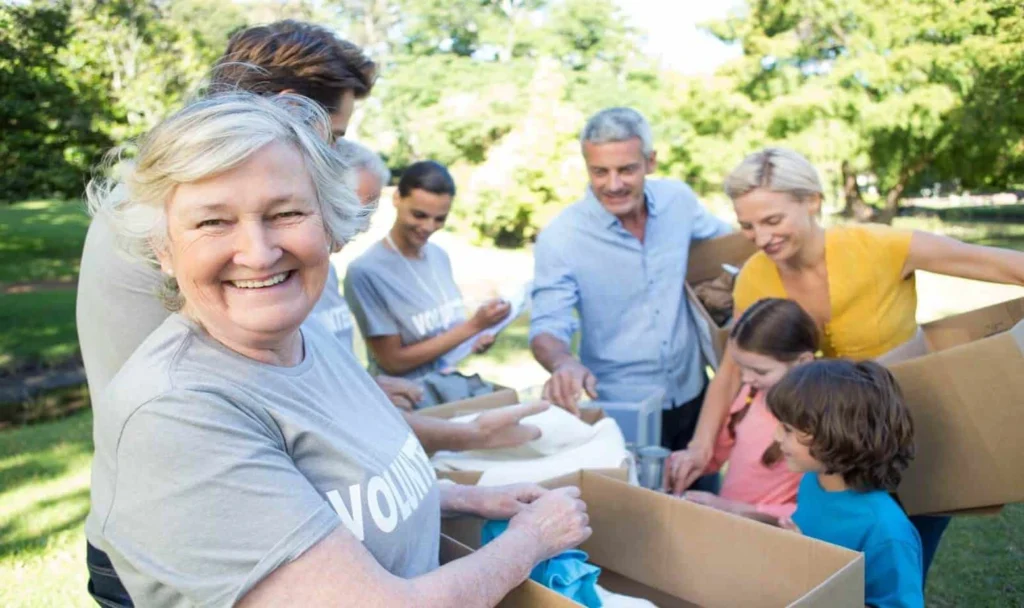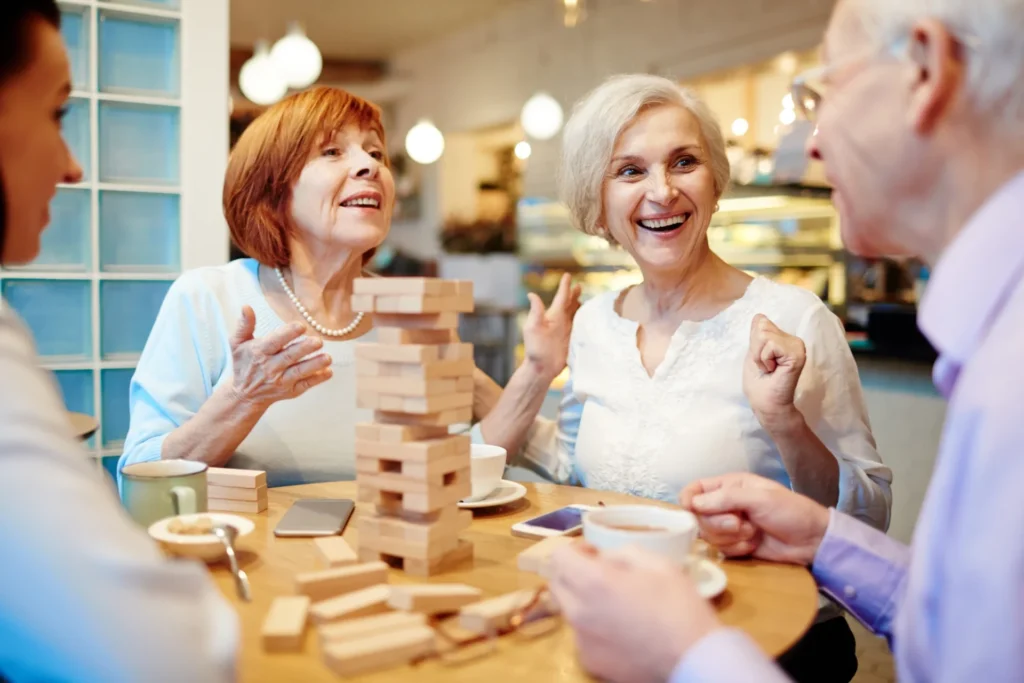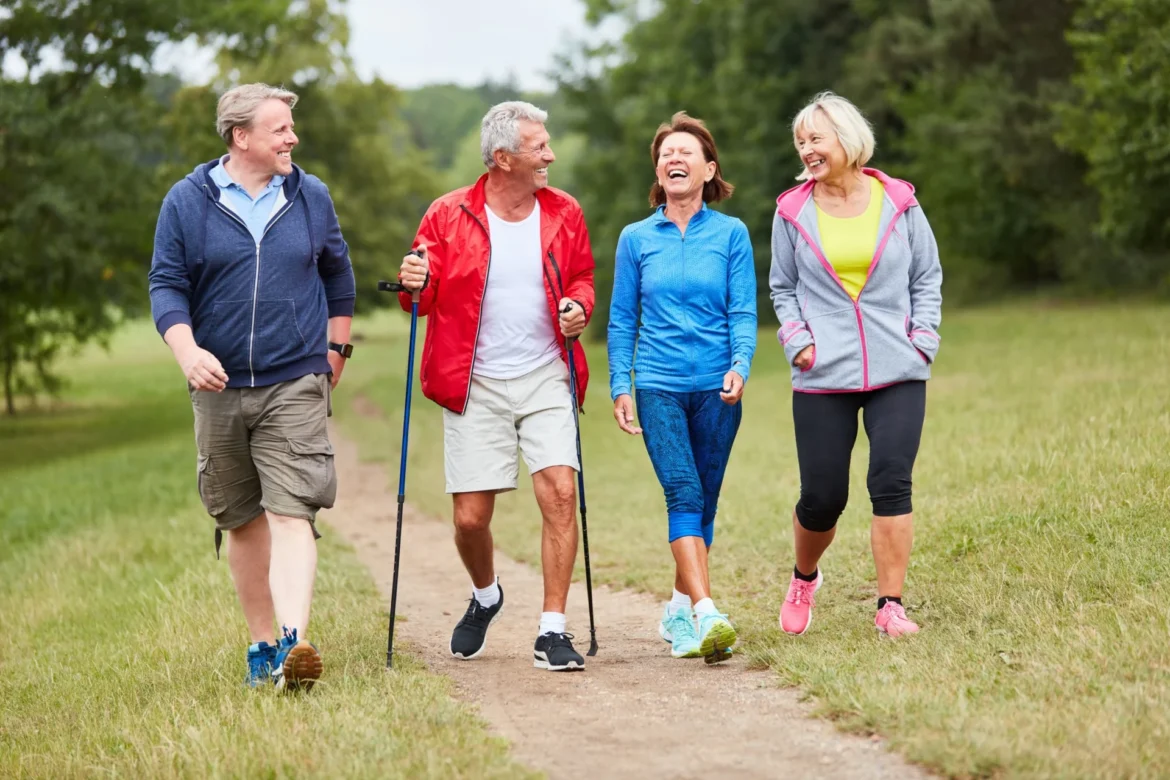Combating loneliness in older adults is a growing public health concern, with profound impacts on both mental and physical well-being. As people age, various factors—such as retirement, the loss of loved ones, reduced physical mobility, and health challenges—can lead to feelings of isolation. However, staying socially active can greatly improve quality of life, offering a sense of connection, purpose, and joy. This in-depth guide explores effective strategies for combating loneliness in older adults to maintain social engagement, boosting both mental and physical health.
Table of Contents
Understanding Loneliness and Social Isolation in Older Adults
Loneliness, often described as the feeling of being alone, affects seniors deeply. It’s important to understand that combating loneliness in older adults involves addressing both loneliness and social isolation. Social isolation refers to an objective lack of social contacts and minimal engagement, while loneliness is a subjective experience that occurs even when some social contacts exist. Both loneliness and social isolation can have severe health consequences.
Studies have shown that chronic loneliness is linked to higher risks of heart disease, obesity, high blood pressure, a weakened immune system, anxiety, depression, cognitive decline, and even early mortality. In fact, research suggests that prolonged loneliness has health effects equivalent to smoking 15 cigarettes a day. For seniors, these issues are even more concerning, as aging often brings physical limitations, the passing of close friends or family, and lifestyle changes that can reduce regular social interactions. Fortunately, there are numerous ways to address loneliness in older adults through meaningful engagement and proactive measures.
Why Social Engagement Is Essential for Older Adults
Combating loneliness in older adults is not just beneficial—it’s essential for their mental and physical health. Social engagement can significantly improve cognitive function, reduce symptoms of depression, lower the risk of dementia, and promote a sense of belonging and purpose. Engaging in social activities stimulates the brain, keeps the mind sharp, and helps manage stress, all of which contribute to overall well-being.
Being socially active also helps seniors maintain better physical health by encouraging them to stay mobile, which is vital for balance, coordination, and reducing the risk of falls. Physical activities like walking clubs or group exercises foster social interaction, improve fitness, and enhance mental health. Social connections also provide emotional support during challenging times, making life transitions easier to navigate.
Practical Strategies for Combating Loneliness in Older Adults
There are numerous ways for older adults to stay connected and socially engaged. Here are some proven strategies for combating loneliness in older adults:
1. Join Community Groups or Clubs
Many communities offer clubs, senior centers, and community groups specifically for older adults, providing a range of activities from book clubs to exercise classes. By joining these groups, seniors can meet new people with shared interests. These gatherings not only provide social interaction but also give older adults something to look forward to, adding structure and enjoyment to their weekly routine.
2. Volunteer to Help Others
Volunteering offers a profound sense of purpose and fulfillment. Many seniors have a lifetime of experience and skills that can be valuable to organizations and charities. Volunteering provides an opportunity to give back while meeting others who share similar values. Many communities welcome older volunteers in hospitals, schools, libraries, and animal shelters. Even small acts, like reading to children or helping at community events, can build a network of friendships.

3. Engage in Hobbies and Group Activities
Hobbies offer both mental stimulation and enjoyment, making them a great way for older adults to connect with others. Whether it’s gardening, painting, knitting, or woodworking, group activities around hobbies can help seniors engage with others while doing something they enjoy. Local classes, community centers, or specialized groups often host hobby clubs for older adults, making it easy for them to join and participate.

4. Participate in Continuing Education and Lifelong Learning
Learning should never stop, and many educational institutions and community centers offer courses tailored for seniors. These classes may cover topics like history, art, computer skills, or personal finance. Lifelong learning not only keeps the mind active but also provides a space for social interaction. Online courses are an excellent option for those who may have limited mobility, allowing them to engage and connect from the comfort of their home.
5. Utilize Technology to Stay Connected
Technology can be a fantastic tool for combating loneliness in older adults. Video calls, social media, and online communities enable older adults to stay in touch with family and friends even when they’re far apart. Digital literacy programs specifically for seniors can help them gain confidence in using smartphones, tablets, and computers. Apps like Zoom or FaceTime make it easy to connect face-to-face, while Facebook groups and online forums allow for community participation.
Encouraging seniors to embrace technology also opens up new opportunities to meet others in online groups centered around shared interests, such as gardening, photography, or literature. With time, technology can be a valuable tool to bridge the gap between generations, enabling seniors to keep in touch with younger family members and friends.
6. Stay Physically Active with Group Exercise Classes
Physical activity is not only essential for physical health but also offers mental benefits and opportunities for socialization. Many communities offer senior-friendly exercise programs, from tai chi and yoga to water aerobics and walking clubs. Group exercise classes can provide a fun, social setting where older adults can build friendships while maintaining fitness. Studies have shown that group exercises improve motivation and adherence, so exercising with others may encourage regular participation.
7. Engage in Faith-Based Activities and Spiritual Groups
For many seniors, religious or spiritual communities provide a vital source of social support. Faith-based groups often organize social activities, volunteer programs, and support groups that foster a sense of belonging. Whether it’s attending church, synagogue, mosque, or other religious gatherings, or participating in faith-based volunteer work, these groups provide a supportive environment where seniors can build strong, enduring relationships.
8. Seek Out Support Groups for Specific Interests or Needs
Support groups can offer comfort and understanding for older adults facing similar life challenges, such as grief, health concerns, or caregiving responsibilities. These groups provide a space where individuals can share experiences, receive emotional support, and develop coping strategies. Many communities and organizations, including hospitals and local non-profits, offer support groups for seniors. Additionally, online support groups provide an option for those who prefer or need to engage from home.
Overcoming Barriers to Social Engagement
While these strategies are helpful, older adults may face several barriers to social engagement, such as limited mobility, health issues, or lack of transportation. Here are some ways to overcome these obstacles:
- Transportation Assistance: Many communities offer senior-specific transportation services, enabling older adults to attend social events, medical appointments, and community activities. Programs like senior shuttles or rideshare discounts can reduce the dependence on family members for transportation, promoting independence.
- In-Home Social Services: For seniors with mobility issues or health limitations, in-home social services can help maintain connections. Programs like Meals on Wheels, visiting companions, or virtual check-in services are valuable resources for keeping seniors engaged and socially connected.
- Accessible Venues and Community Events: Communities can play a significant role by organizing accessible, senior-friendly events. Parks, libraries, and senior centers that prioritize accessibility and provide aids like hearing assistance devices, ramps, and proper seating arrangements make it easier for all seniors to participate.
How Family and Caregivers Can Support Social Engagement
Family members and caregivers are vital in promoting social activity among older adults. Here are some ways they can help:
- Encouraging Social Opportunities: Family members can encourage seniors to pursue their interests, whether by joining a club, attending church, or participating in community events. Setting up regular visits, especially from younger family members, can boost morale and provide valuable connection.
- Including Seniors in Family Events: Actively involving older adults in family gatherings, celebrations, and daily activities keeps them connected. Special roles during family events, such as sharing stories, cooking, or helping plan, can make seniors feel valued and included.
- Providing Transportation: Families can arrange for transportation to community activities, doctor’s appointments, or social events. Ensuring seniors have access to reliable transportation, whether through rideshare services, volunteer driver programs, or by taking them directly, supports their independence.
- Helping with Technology: Teaching seniors how to use video calling, social media, and messaging apps can empower them to maintain connections with family and friends. Simple instructions and ongoing support from family members can make a significant difference.
Benefits of Staying Socially Active for Mental and Physical Health
Research has repeatedly shown that older adults who remain socially engaged are less likely to experience cognitive decline, depression, and physical health problems. Here’s how combating loneliness in older adults through social activity benefits seniors:
- Improved Mental Health: Social interaction reduces feelings of loneliness, depression, and anxiety. It provides emotional support and boosts self-esteem, helping seniors maintain a positive outlook.
- Enhanced Cognitive Function: Mental stimulation from social activities can slow cognitive decline. Regular interaction requires memory and mental engagement, both of which contribute to maintaining cognitive function.
- Better Physical Health: Engaging in group physical activities, such as exercise classes or walking clubs, encourages regular movement, helping seniors maintain physical strength and flexibility.
- Stronger Immune System: Socially engaged seniors tend to have a stronger immune response, helping them resist illnesses more effectively.
- Increased Longevity: Studies show that seniors who are socially active are more likely to live longer, healthier lives. Having a strong support network promotes overall well-being and resilience against life’s challenges.
Conclusion: Staying Proactive About Social Engagement
Combating loneliness in older adults requires intentional effort, but the benefits of staying socially active are profound and life-enhancing. From joining community groups to learning new technologies, seniors have numerous opportunities to connect with others and enrich their lives. While aging may bring physical limitations, it doesn’t have to mean social isolation. With the right support from families, caregivers, and communities, older adults can lead vibrant, connected lives.
By fostering social connections, staying physically active, and engaging in purposeful activities, seniors can enjoy better health, greater happiness, and improved quality of life. Encouraging social engagement in older adults not only combats loneliness but also promotes a sense of joy, fulfillment, and belonging that is invaluable at any age.


